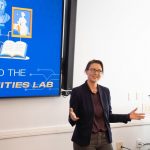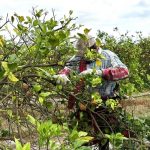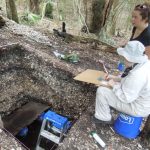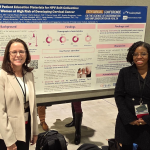Category: Research
Sweeten your Valentine’s Day with DIY vanilla extract

Read this step-by-step guide to learn how to make vanilla extract at home—available in English and Spanish!
UF faculty help shape strategy for human exploration of Mars

Two UF faculty members with the Astraeus Space Institute played key leadership roles in a major report intended to guide U.S. science priorities for future human missions to Mars.
How farmers, foresters and scientists are protecting Florida’s groundwater

An interdisciplinary team led by the UF Water Institute recently led a novel participatory modeling effort.
Indiana Joe and the Pit of Bones

Move over, Harrison Ford. The latest addition to the Raiders of the Lost Ark franchise, shot on location at the University of Florida’s Montbrook fossil dig, has a new star. Follow the action in the first Cup o’ Joe of 2026.
Markers at birth may help predict type 1 diabetes

UF scientists have helped identify protein markers linked to a higher risk of developing type 1 diabetes.
Conservation bright spots: Making a difference for nature, climate and people

Coming up on Feb. 11 at 12:50 p.m., join the Whitney Laboratory for a lecture by Nancy Knowlton, Ph.D.
UF debuts high-tech digital research lab

The Center for the Humanities and the Public Sphere Digital Humanities Lab is a high-tech workspace supporting research, collaboration and innovation.
UF/IFAS harvest provides hope for Florida’s citrus

Researchers will use harvested fruit data from 2022 to 2026 to analyze how potential solutions might offer farmers hope against citrus greening.
Lessons from Shell Mound

When Hurricane Helene tore through Florida’s Big Bend, it didn’t just damage homes and shorelines — it reshaped a 1,000-year-old archaeological site. Discover how UF researchers are restoring Shell Mound near Cedar Key and what this ancient Indigenous gathering place can teach us about resilience, climate change and coastal living today.
Enhancing HPV self-testing to screen for cervical cancer

UF Health Cancer Institute researchers use community focus groups to zero in on ways to improve patient education materials on HPV self-collection.
Next Page »